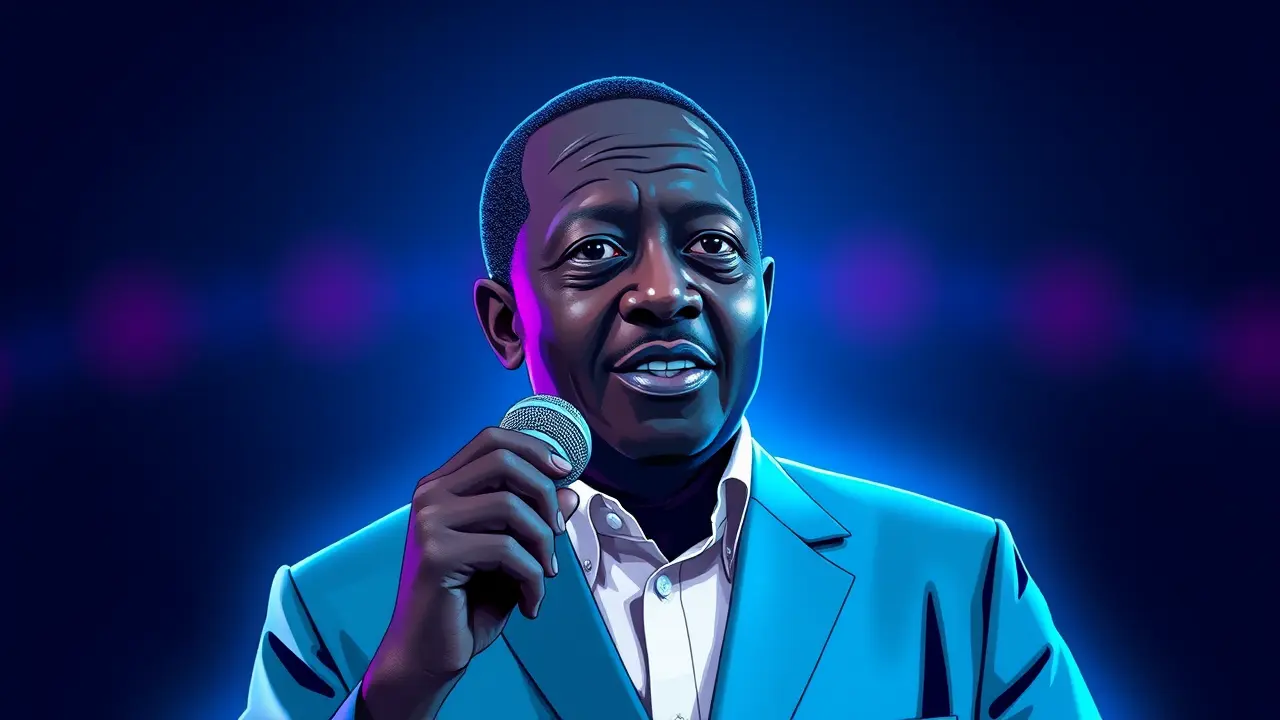Former Kenyan PM Raila Odinga Dies at 80.
The political landscape of Kenya, and indeed all of Africa, has been irrevocably altered with the heartbreaking confirmation from family sources to the BBC that former Prime Minister Raila Odinga, the indefatigable pillar of Kenyan opposition and a titan of East African politics, has passed away at the age of 80. He died on Wednesday, not on his home soil where he fought so many of his legendary battles, but in a hospital in India where he was receiving medical treatment, a detail that adds a layer of profound sorrow to an already monumental loss.For decades, Odinga was not merely a politician; he was an institution, a symbol of relentless democratic resistance whose personal narrative was inextricably woven into the fabric of Kenya's post-colonial identity. From his early days as a firebrand pro-democracy activist, enduring years of detention under the Daniel arap Moi regime, to his pivotal role in the tumultuous 2007 presidential election—a contest whose violently disputed outcome plunged the nation into a tragic ethnic conflict and led to his eventual appointment as Prime Minister in a power-sharing government—Odinga's life was a testament to the brutal, high-stakes theater of African power struggles.His legacy is a complex tapestry of both revered statesmanship and polarizing controversy; to his millions of supporters, 'Baba' was the unwavering voice of the marginalized, the people's president in spirit if never fully in title, a champion of devolution and a new constitutional order. To his detractors, he was a perpetual agitator, a master of political brinkmanship whose ambition knew no bounds.The void he leaves is not just one of personality but of a central gravitational force in Kenyan politics. His absence throws the nation's immediate future into a state of precarious uncertainty, raising urgent, unanswerable questions about the stability of the current administration, the fragile peace between rival ethnic blocs, and the very direction of the political vehicle he built, the Orange Democratic Movement.Who now can command the loyalty of his vast coalition? Who can articulate the aspirations of his base with the same thunderous conviction? The streets of Nairobi and Kisumu are likely to be filled with a palpable, grieving tension, a mixture of profound mourning and anxious speculation about what comes next. The international community, from Washington to London and across the African Union, watches with bated breath, recognizing that the passing of such a colossal figure is not merely a national tragedy for Kenya but a seismic event that will send ripples across a continent where the old guard of liberation-era leaders is steadily fading.Raila Odinga's story was the story of modern Kenya—a saga of struggle, resilience, and an unyielding quest for a more equitable society. His final chapter closes now, leaving a nation to grapple with an unimaginable silence where once there was a roar.
Latest News
The charts are whispering what the true believers have felt in their bones for weeks—Dogecoin is carving out a bottom.
17 hours ago5 comments
The Institute for Fiscal Studies has thrown a stark warning onto Rachel Reeves's desk, urging the Chancellor to confront a potential £22 billion shortfall in
17 hours ago3 comments
Alright, let's break down this absolute heater of a performance from the Chicago Blackhawks, because if you missed this one, you missed a party.
18 hours ago5 comments
The ice was hot last night in the NHL, folks, serving up a slate of games that felt less like a regular season Tuesday and more like a playoff preview with a
18 hours ago3 comments
The XRP chart is painting a tantalizing picture for those with the stomach to withstand the relentless pressure from crypto's leviathans.
18 hours ago4 comments
It’s in the small shifts, the quiet recalibrations of a Thursday morning, where the most meaningful change often takes root.
18 hours ago4 comments
In a move that sent ripples of quiet confidence through the crypto ecosystem, blockchain intelligence firms tracked a monumental treasury allocation from
18 hours ago4 comments
In a move that would have drawn a nod of approval from historical figures like Churchill, who understood the delicate balance of power within democratic
18 hours ago2 comments
It’s quiet here...Start the conversation by leaving the first comment.
